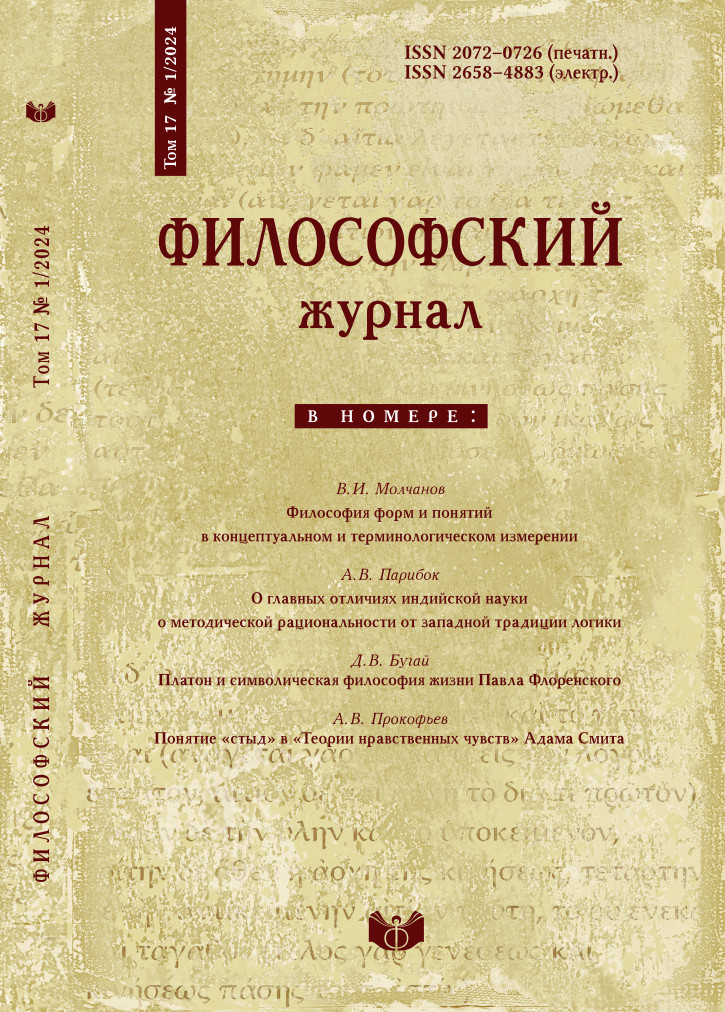The notion of shame in Adam Smith’s 'The Theory of Moral Sentiments'
DOI:
https://doi.org/10.21146/2072-0726-2024-17-1-137-152Keywords:
morality, ethics, emotions of self-appraisal, shame, remorse, A. SmithAbstract
Adam Smith’s view of shame is generally in line with its understanding, which distinguishes shame from other emotions of negative self-appraisal on the basis of the dependence of shame on the blame by others. In this respect, Smith belongs to the majority of Early Modern moral philosophers analyzing the phenomenon of shame. However, his view is specific in two respects: a) for him, any kind of moral self-appraisal has some connection with the judgment of an informed other, and b) images of the informed other used by him are diverse. They line up in the continuum from real other people to imagined other people with ordinary properties and from them to the imagined impartial and benevolent observer. The figure of the impartial and benevolent observer plays a crucial part in moral self-appraisal, but only as a normative compass. His judgments do not evoke shame. In The Theory of Moral Sentiments, there are many fragments that correspond to the scheme “shame is a consequence of external judgment”, but there are also fragments that problematize it. In some places, repentance and remorse, i.e., emotions considered by other Early Modern philosophers as the opposite of shame by virtue of their independence of the blame by others, arise under the influence of the external gaze. In some other places, the difference between shame and remorse is due to the fact that they respond to violations of different moral principles (shame is an appropriate response to self-degrading actions, remorse – to the infliction of harm). Sometimes shame even appears as a component of a complex sentiment labeled as remorse.






